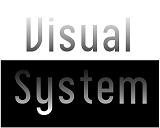Ontario Rental Agreement Rules: What You Need to Know
Renting a property in Ontario can be a great option for people who are looking for a place to live but are not ready to commit to buying a house or a condominium. Whether you`re a landlord or a tenant, you need to be aware of the Ontario rental agreement rules to ensure that your interests are protected.
The Residential Tenancies Act (RTA) of Ontario governs the rights and responsibilities of both tenants and landlords. The act applies to residential tenancies in Ontario, including houses, apartments, and rooms rented for living purposes.
Under the RTA, landlords are required to provide tenants with a written tenancy agreement at the beginning of the tenancy. The agreement should include information about the rent, the length of the tenancy, and any additional terms or conditions agreed upon by the parties. The agreement should also outline the rules and regulations that the tenant must follow while renting the property.
One of the key rules that landlords and tenants need to be aware of is the requirement for a notice period. Under the RTA, landlords must provide tenants with written notice at least 60 days before the end of the tenancy if they do not intend to renew the tenancy agreement. Similarly, tenants are required to provide landlords with at least 60 days` written notice before the end of the tenancy if they plan to vacate the property.
The RTA also sets out the rules governing rent increases. Landlords are allowed to increase the rent once every 12 months, with the maximum increase rate set by the government. The landlord must provide the tenant with written notice of the rent increase at least 90 days before the effective date of the increase.
Another important rule that landlords and tenants should be aware of is the requirement for security deposits. Landlords are allowed to collect a security deposit at the beginning of the tenancy, which is usually equal to one month`s rent. The deposit must be returned to the tenant at the end of the tenancy, as long as there is no damage to the property or unpaid rent.
In addition to the rules set out by the RTA, landlords and tenants must also comply with other applicable laws and regulations, such as building codes, health and safety regulations, and zoning bylaws.
In summary, if you`re planning to rent a property in Ontario, it`s essential to understand the Ontario rental agreement rules. As a tenant, it`s important to know your rights and responsibilities, while as a landlord, you need to be aware of your obligations under the law. By following these rules, you can ensure a smooth and stress-free tenancy experience.
